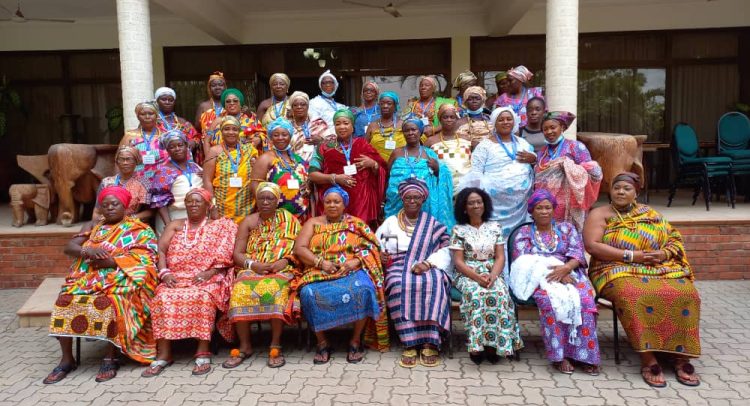Queen mothers in the Greater Accra Region have begun a two-day training to equip them to offer Alternative Dispute Resolution (ADR) services in their communities.
The training formed part of the “Queen Mothers’ Mediation Programme” being undertaken as a Corporate Social Responsibility (CSR) of Ashesi University.
It is aimed at enhancing the capacity of the queen mothers in the capital to help prevent and resolve disputes in their communities.
Senior Assistant Professor at the Department of Business Administration, Ashesi University, Enyonam C. Kudonoo, who led the session, said the training has an ultimate goal of building a culture of dispute prevention and resolution for sustainable development in the Greater Accra Region.
She said queen mothers are leaders who have great impact in our communities; hence the need to equip them with the skills to promote peace, since without it there would be no progress.
“I am helping them build their confidence to be able to make the expected impact in their communities,” she said. “So what we are doing this morning is to lay the foundation for ADR.”
Dr. Kudonoo said the plan is for the queen mothers to put into practice the skills they acquire from the training.
“So, though they are learning how to mediate, they can start their own mediation centres in their communities and also earn some income. It is like merging conflict resolution with entrepreneurship,” she said.
The Paramount Queen Mother of the Osudoku Traditional Area, Nana Amponsah Dokua II, and President of the Greater Accra Queen Mothers Association, said the training which looks at mediation will add to their existing knowledge in ADR.
“From here, as a Paramount Queen Mother, I am going to gather other queen mothers in my traditional area to impact this knowledge in them so that they will also join me in helping to prevent and resolve disputes in our communities. I cannot do it alone, so with their help we will be able to spread this news to everybody,” she said.
A beneficiary, Naa Adoley Abladey I, Queen mother of Sempe Newtown and Sukura, said the workshop is timely as it has been a while since they acquired similar skills.
“The workshop is good because when you look at the things we do in our communities it will encourage us to do our work well,” she said.
By Jamila Akweley Okertchiri


